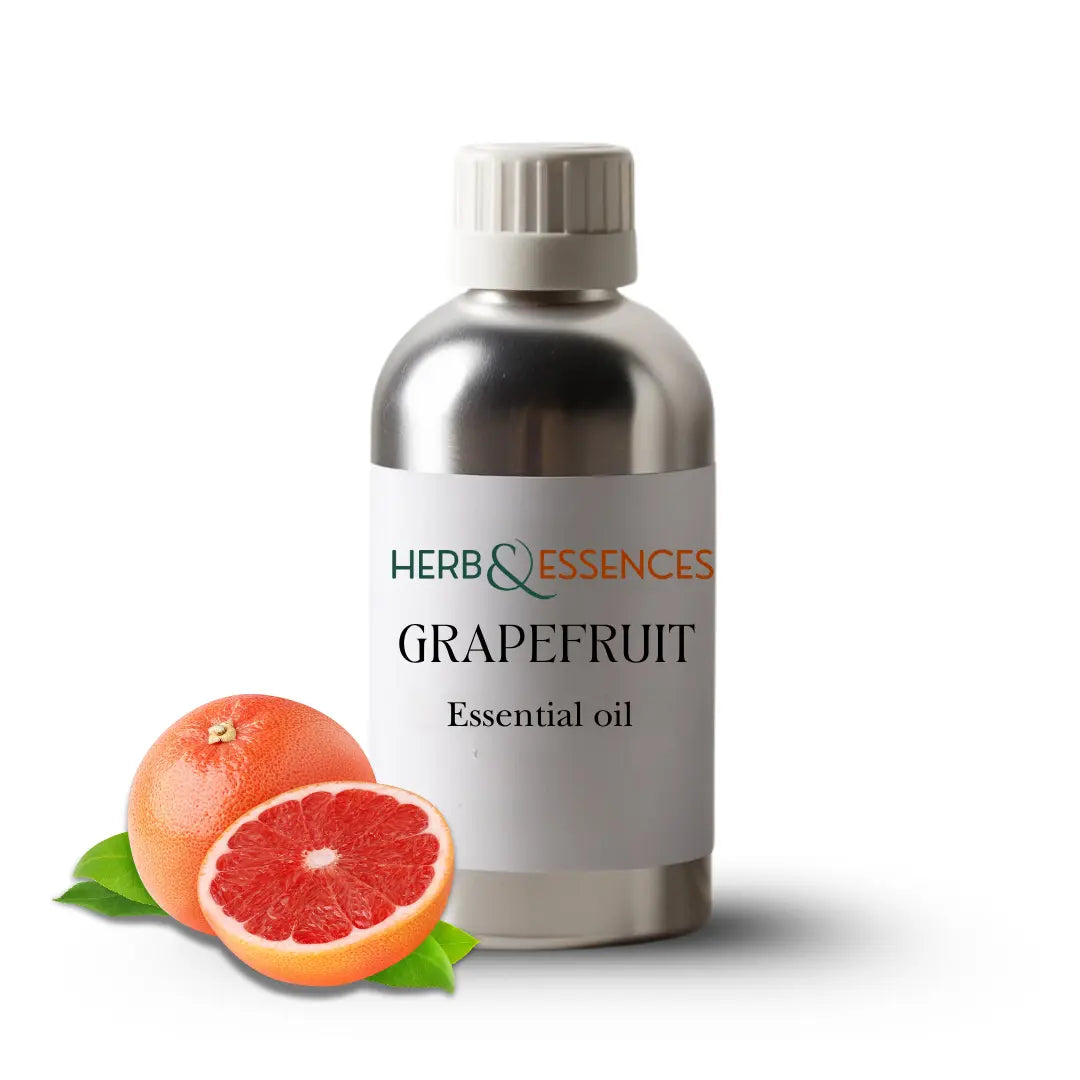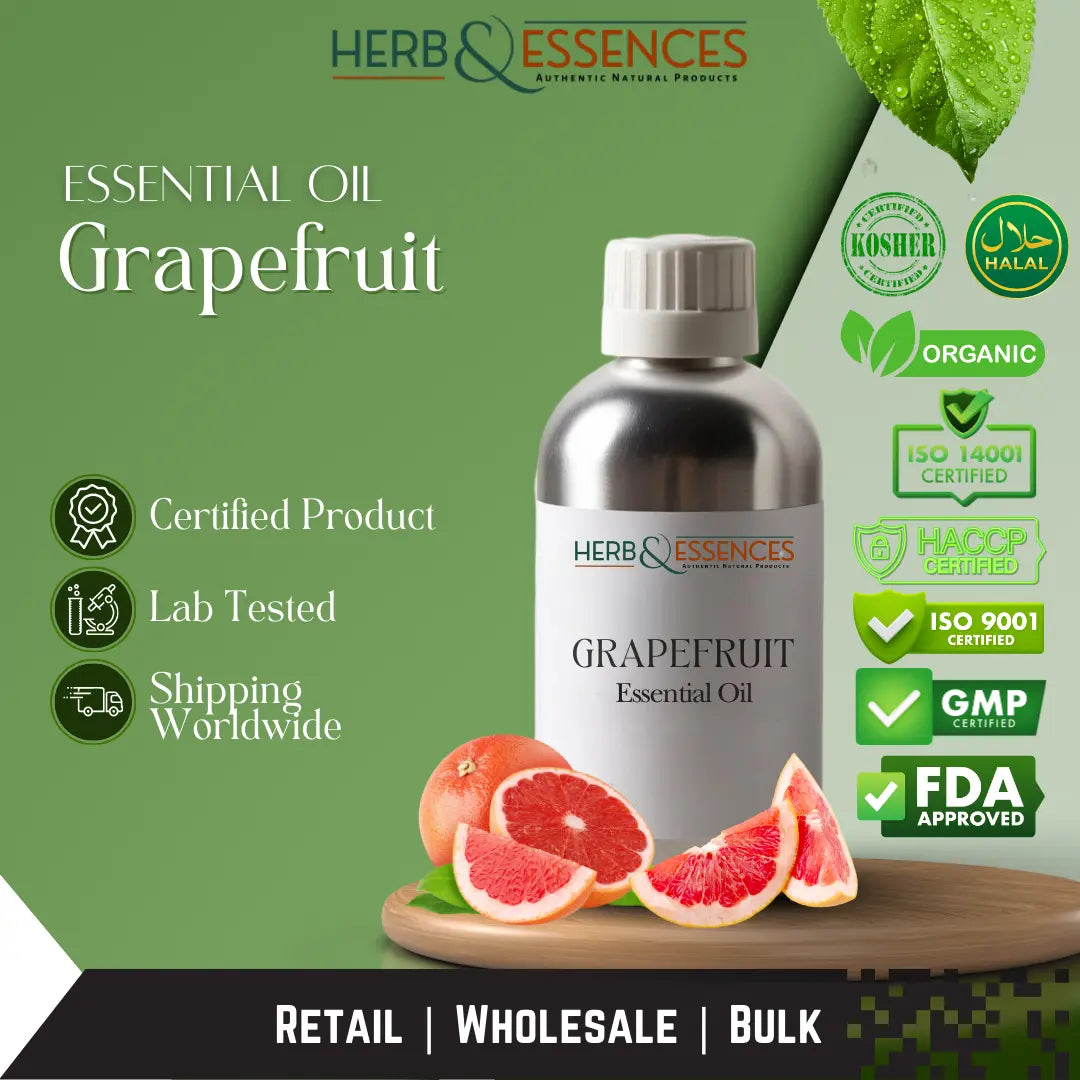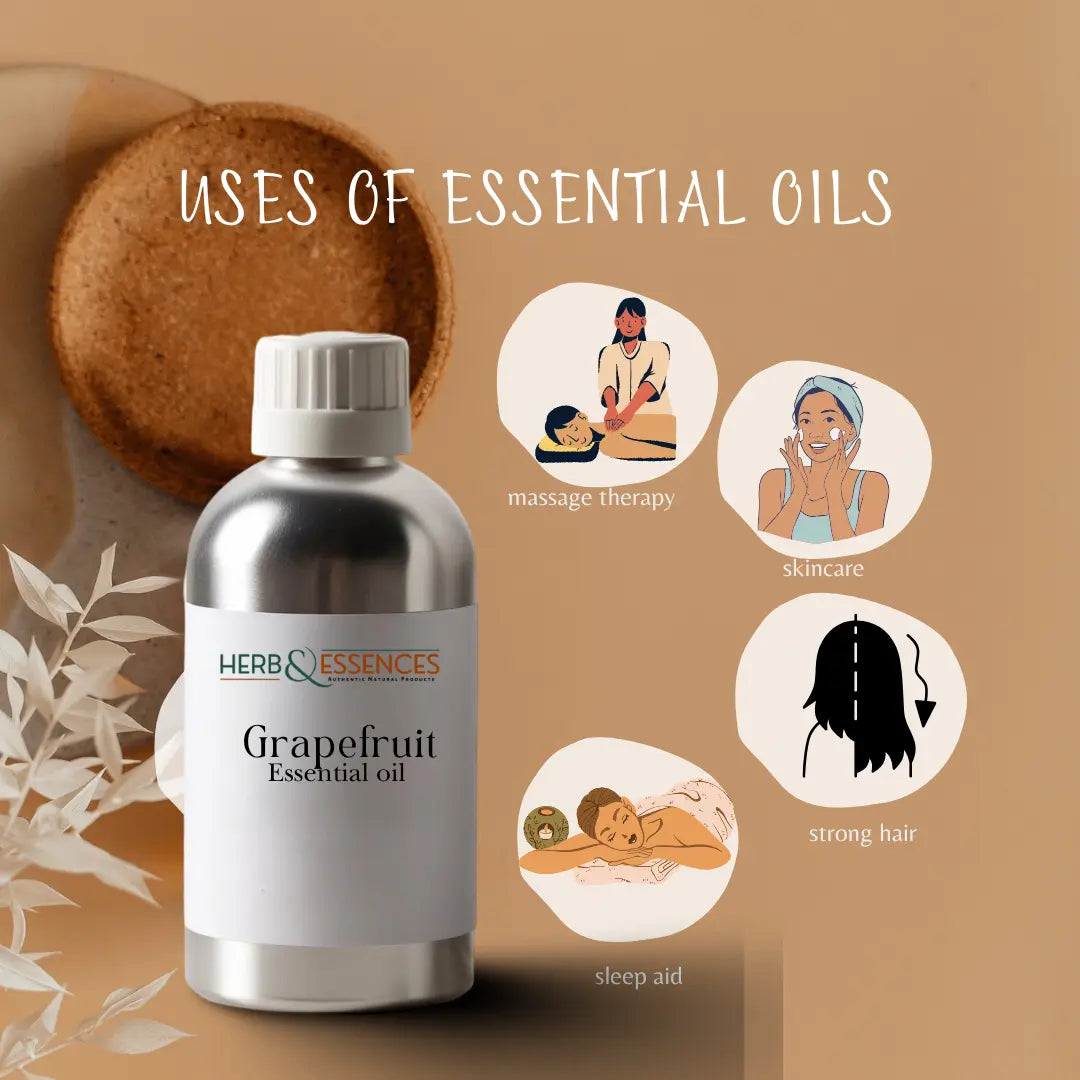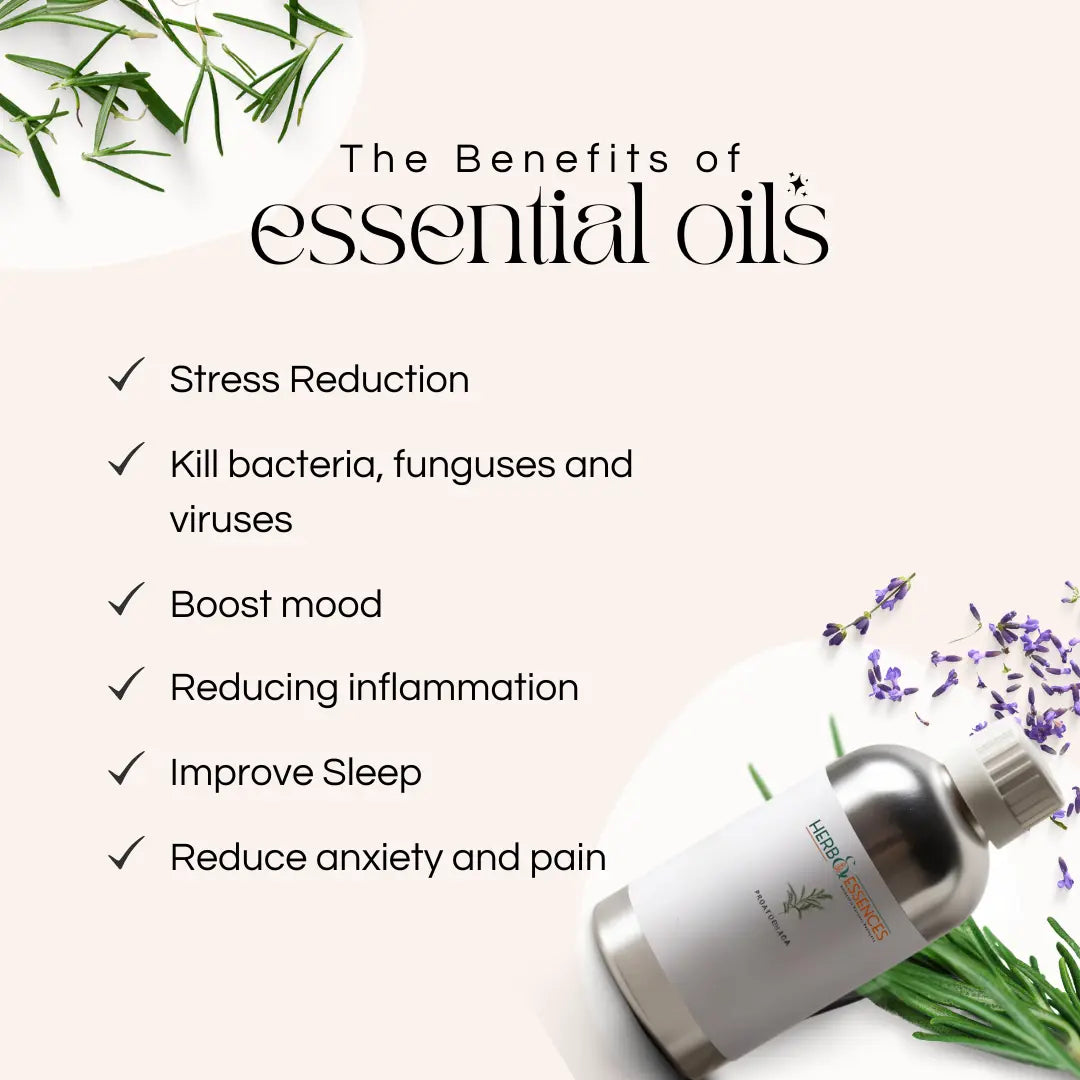Grapefruit Essential Oil
Grapefruit Essential Oil
Couldn't load pickup availability
Share
Grapefruit Essential Oil
Botanical Information
Grapefruit essential oil is extracted from the peel of Citrus paradisi, a citrus fruit belonging to the Rutaceae family. Known for its invigorating, fresh, and slightly sweet aroma, Grapefruit oil has become a favorite in aromatherapy, skincare, and wellness. Its cleansing and uplifting properties are highly valued in promoting both physical and emotional balance.
Origin and Source
Grapefruit trees are native to the Caribbean and subtropical regions of Asia but are now widely cultivated in regions such as the United States (Florida and California), South Africa, and Brazil. The essential oil is obtained from the fruit peels of sustainably cultivated grapefruit trees, ensuring premium quality while protecting the environment.
Extraction Method
Grapefruit essential oil is obtained through cold pressing:
· The fresh peel of ripe grapefruits is mechanically pressed to release the oil, preserving its full spectrum of aromatic and therapeutic properties. This process avoids the use of heat, ensuring the oil remains pure and potent.
Physical Properties
· Appearance: Clear to pale yellow liquid with a smooth, light consistency.
· Aroma: Fresh, citrusy, slightly sweet with tangy undertones.
· Viscosity: Light, making it ideal for blending with carrier oils and other essential oils.
· Solubility: Insoluble in water; soluble in carrier oils and alcohol.
Technical Specification
· Specific Gravity: 0.840–0.860.
· Refractive Index: 1.465–1.475.
· Flashpoint: Approximately 50°C.
Uses and Applications
· Aromatherapy: Uplifts mood, relieves stress, and promotes mental clarity.
· Skincare: Included in cleansers, toners, and lotions to purify and tone the skin.
· Massage Therapy: Blended with carrier oils for energizing and detoxifying massages.
· Hair Care: Used in hair oils and shampoos to promote scalp health and shine.
· Natural Remedies: Traditionally used to support digestion and enhance metabolism.
· Perfumery: Acts as a top note, adding brightness and zest to fragrance blends.
· Home Care: Added to cleaning products for its antibacterial properties and fresh aroma.
Benefits and Properties
· Uplifting and Energizing: Helps improve mood, alleviate fatigue, and promote positivity.
· Detoxifying: Supports circulation and lymphatic drainage during massage.
· Skin-cleansing: Helps balance oil production, purify pores, and refresh the complexion.
· Antimicrobial: Aids in natural cleaning and purifying surfaces.
· Aromatic Freshness: Creates a vibrant and refreshing atmosphere when diffused.
Safety Information
· Dilution: Always dilute Grapefruit essential oil with a carrier oil before applying directly to the skin to prevent irritation.
· Phototoxicity: Avoid sun exposure on treated skin for at least 12 hours, as the oil may increase sensitivity to UV rays.
· Patch Test: Perform a patch test on a small area of skin to check for sensitivities.
· Avoid Contact: Keep away from sensitive areas such as the eyes or open wounds.
· Medical Precautions: Consult a healthcare professional if pregnant, breastfeeding, or undergoing medical treatment.
· Keep Away: Store safely out of reach of children and pets.
Storage and Shelf Life
· Storage: Store in a cool, dry place away from direct sunlight, heat, and moisture. Use amber or cobalt blue glass bottles to maintain the oil’s aromatic and therapeutic integrity.
· Shelf Life: Typically lasts 1–2 years under optimal storage conditions.
Packaging and Handling
· Packaging: Glass bottles are recommended for small quantities, while HDPE containers are suitable for bulk storage.
· Sealing: Ensure containers are tightly sealed to prevent evaporation and contamination.
· Handling: Use clean, sterilized tools during transfer or application to maintain purity.
Sustainability and Ethics
· Eco-conscious Practices: Produced using sustainable farming and harvesting techniques to protect grapefruit trees and their ecosystems.
· Cruelty-free: Not tested on animals, adhering to ethical manufacturing practices.
· Vegan-friendly: Contains no animal-derived components, making it suitable for eco-conscious consumers.
· Fair Trade: Often sourced through initiatives supporting local farmers and promoting equitable livelihoods.








